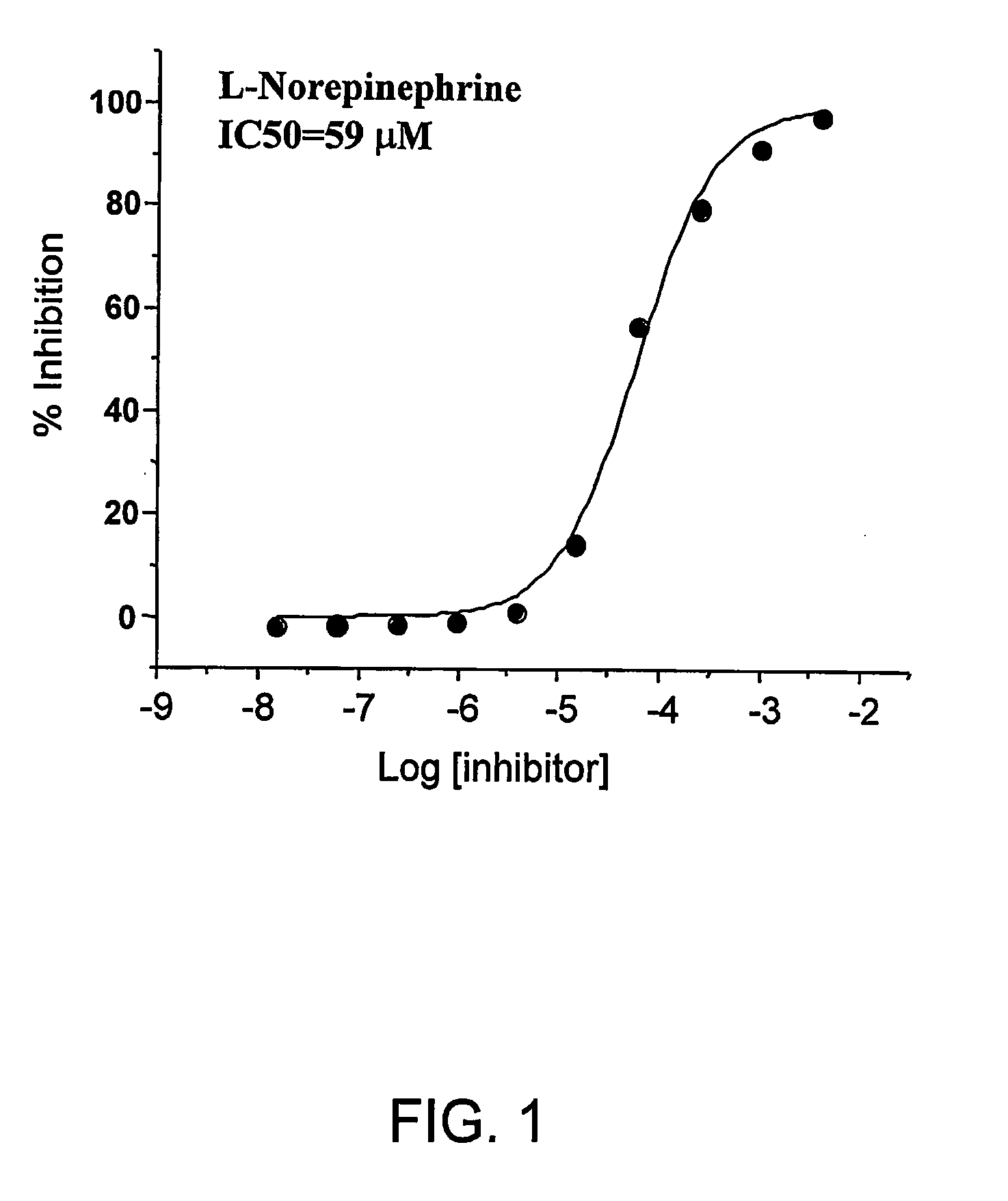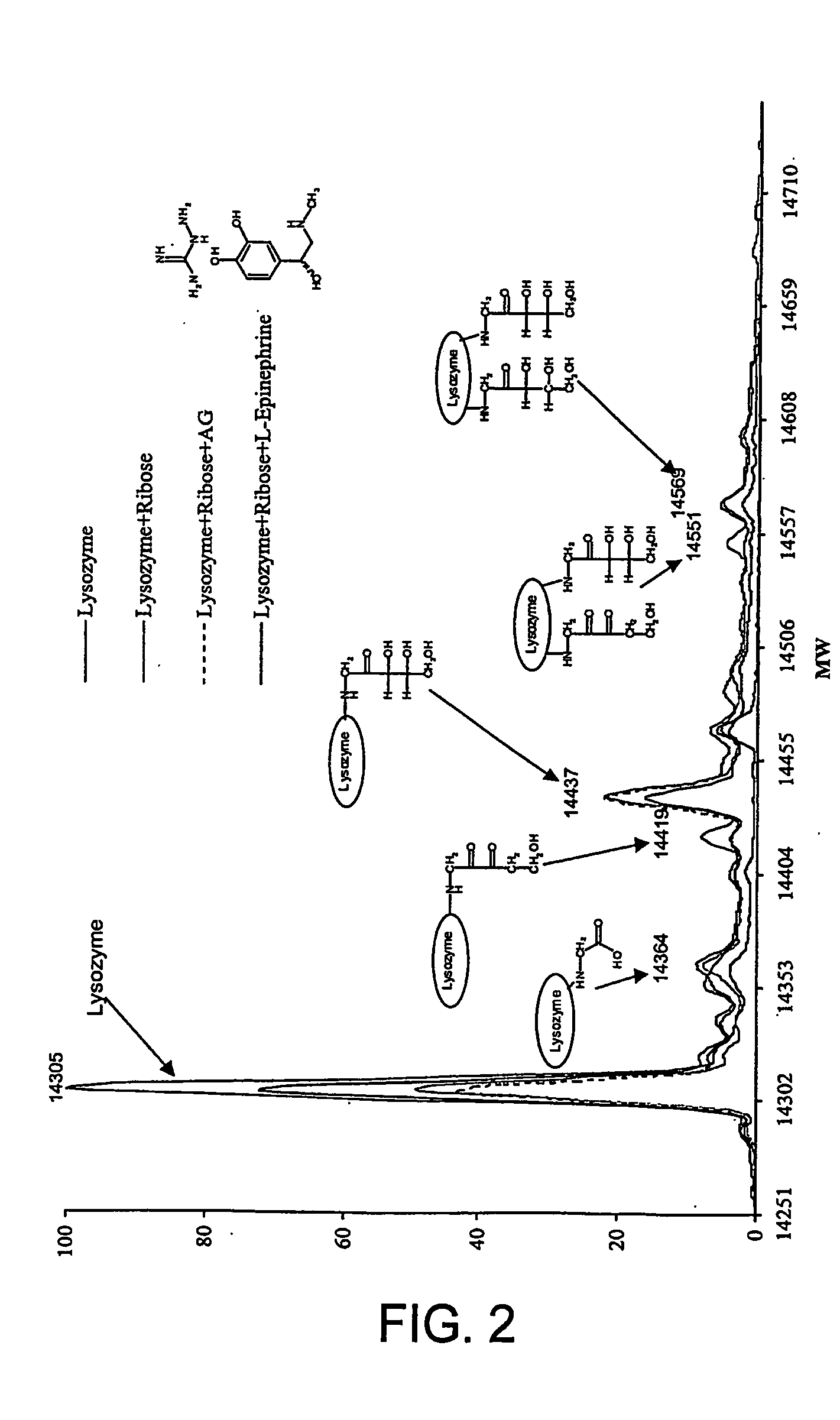Anti-glycation agents for preventing age- diabetes- and smoking-related complications
a technology of anti-glycation and smoking, which is applied in the direction of nitro compound active ingredients, peptide/protein ingredients, metabolic disorders, etc., can solve the problems of loss of mechanical properties of collagenous tissues, vision impairment, and functional impairment of cardiovascular system, and achieve the effect of preventing or treating the loss of mechanical properties
- Summary
- Abstract
- Description
- Claims
- Application Information
AI Technical Summary
Benefits of technology
Problems solved by technology
Method used
Image
Examples
Embodiment Construction
The invention provides novel inhibitors of protein glycation and AGEs formation, many of them more potent and safer than inhibitors known in the prior art. These compounds have been identified from compound libraries by a high throughput screening assay. The mechanism of inhibition of the compounds so identified was then studied and a number of their structural analogs were synthesized, to develop lead candidates for the treatment of age-, diabetes-, and smoking-related complications.
During the glycation reaction between proteins and reducing sugars, a specific fluorescence with excitation and emission wavelength of 370 nm and 440 nm, respectively, is observed. This fluorescence, commonly referred to as Maillard fluorescence, is attributed to the formation of heterocyclic aromatic ring structures (both free and protein-bound) which constitute AGEs. A Maillard fluorescence-based assay was developed and optimized for screening compound libraries for chemical compounds that are able...
PUM
| Property | Measurement | Unit |
|---|---|---|
| emission wavelength | aaaaa | aaaaa |
| emission wavelength | aaaaa | aaaaa |
| volume | aaaaa | aaaaa |
Abstract
Description
Claims
Application Information
 Login to View More
Login to View More - R&D
- Intellectual Property
- Life Sciences
- Materials
- Tech Scout
- Unparalleled Data Quality
- Higher Quality Content
- 60% Fewer Hallucinations
Browse by: Latest US Patents, China's latest patents, Technical Efficacy Thesaurus, Application Domain, Technology Topic, Popular Technical Reports.
© 2025 PatSnap. All rights reserved.Legal|Privacy policy|Modern Slavery Act Transparency Statement|Sitemap|About US| Contact US: help@patsnap.com



